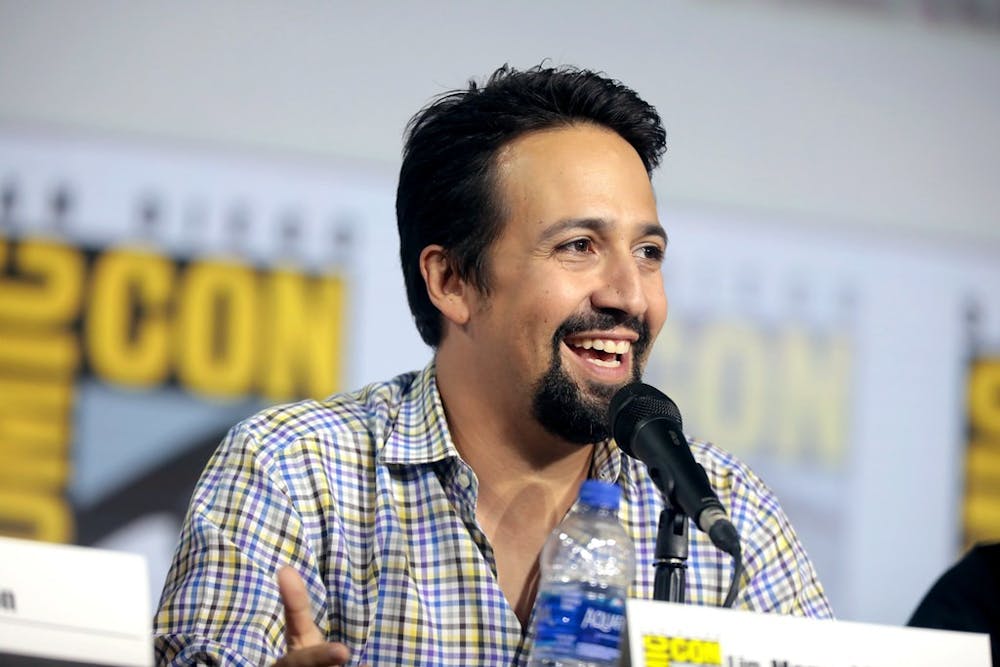If you’re like me, vague memories of Philip Pullman’s His Dark Materials: The Golden Compass and its cinematic iteration wove themselves intermittently throughout your childhood. Although they were less beloved than Harry Potter, less modern than Percy Jackson & the Olympians and less classic than The Chronicles of Narnia, they are perhaps the most timeless and successfully constructed stories of them all (although the 2007 movie adaptation garnered a fair amount of criticism).
The trilogy follows a young girl, Lyra (Dafne Keen), and her daemon — a shapeshifting being that is an extension of the soul which settles into a single animal form once a child transitions into adulthood — as they navigate the forces at play in their world. These forces include disappearing children, an explorer uncle who has run amok of the government, a floating city in the Northern Lights and the all powerful Magisterium, an institution that dictates social norms and structures through religion.
This last key player in Pullman’s fantasy world might also be the reason that this series has faded into the background of children’s fantasy books despite its commercial success. The Magisterium contains heavy references to Catholicism. As a result, the Catholic Church banned the book series, forever marking The Golden Compass and its two successors as rather subversive texts.
Enter His Dark Materials. The BBC adaptation comes a little over 10 years after its predecessor, a movie that, while ambitiously casted and CGI heavy, loses much of the bite and detail of Pullman’s original world.
While the movie was fun and imaginative (it will always have a special place in my heart), the film’s narrative was rushed. And if you are familiar with the books, the movie only encompassed a limited portion of the behemoth storyline that makes Pullman’s work so interesting. In a corrective measure, the new TV series (the first two episodes of which have been released on all HBO platforms) takes its time, allowing the world to unfold around the characters in a way that seems true to the spirit of the books.
Some have criticized the show for being too much like Game of Thrones — which, considering the very severe difference in worlds, character dynamics and plot, I see very little truth in, although the opening credits were quite obviously inspired by those of that show. The main difference between the two, however, is that I found that the joy of Game of Thrones was discovering the characters within a world that remains largely familiar to them and to us.
On the other hand, His Dark Materials relies on familiar character dynamics to lead us through the world at the same pace as the main character discovers it — Lyra has spent her whole life within the bounds of Oxford College and knows little about the world beyond.
For example, although we don’t know very much about Lyra’s background and have to patchwork together the information we’ve gained from other characters about life outside her home, the audience does intrinsically understand her distant but paternal relationship with her uncle that defines her inner and external life, the shy reverence she pays toward the beautiful Ms. Coulter (played by Ruth Wilson, whose portrayal of a potentially dangerous woman is much subtler than in the 2007 movie) and the familiar but commanding relationship with her friend Pip.
As such, we become familiar with who our protagonist is and can begin to discover the world through her eyes, trusting our relationship with Lyra even as the rest of the world proves far darker than we had previously thought.
This connection with the main character is buoyed throughout the episodes by effective cinematography. The camera, while seemingly impartial and egalitarian in its observation of other characters, gets caught up in Lyra’s energetic existence. It follows her movements and becomes active around her, effectively involving the viewer in her small world.
The music, too, builds on the emotionality of the characters, drawing you into the space and action unfolding on screen, and the actors show a strong command of their characters, honoring the little details that really dig into the root of someone. For example, the scene that depicts Lyra’s Uncle Asriel (James McAvoy) as he tucks her into bed backwards, reveals both his paternal incompetence and lack of care for his niece. The show, for the most part, succeeds on a technical, as well as a narrative, level.
Although it’s not for certain that His Dark Materials will find its feet — it’s a little hard to tell so early in the series — the first episode paved the way for a strong first season. I do wish there had been more Lin-Manuel Miranda in the first episode, though.





